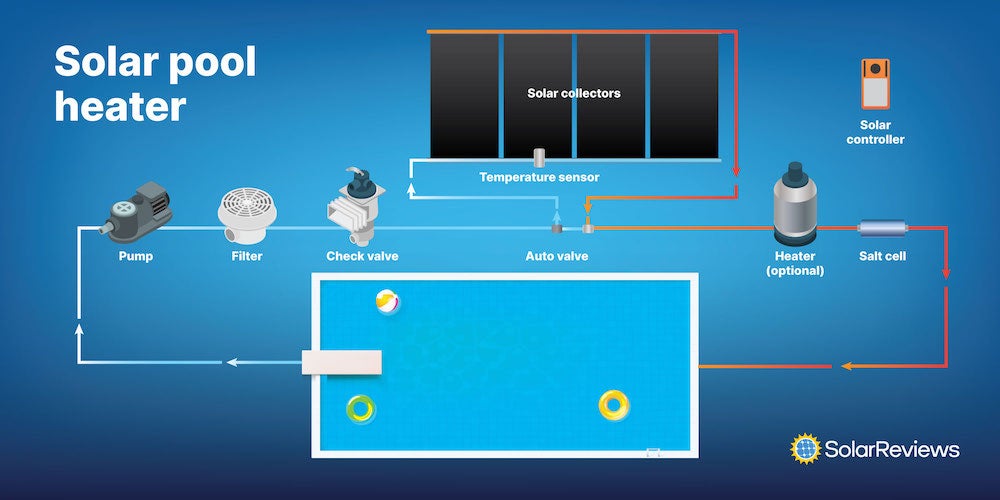Curious about the energy consumption of above-ground pools? In this article, we explore whether these popular summer sanctuaries guzzle up electricity or if they are surprisingly efficient. By examining the factors that influence power usage, we shed light on the true electrical footprint of above-ground pools, helping you make an informed decision for your backyard oasis. So, if you’ve ever wondered about the energy costs associated with these swimming havens, keep reading to uncover the truth about their electricity usage.
This image is property of images.pexels.com.
Understanding Above-Ground Pools
Above-ground pools have become increasingly popular in recent years due to their affordability, ease of installation, and versatility. Unlike traditional in-ground pools, they do not require extensive excavation or construction, making them a more convenient option for many homeowners. However, one common concern that arises when considering an above-ground pool is its electricity usage. In this article, we will delve into the various factors that affect the electricity consumption of above-ground pools and provide helpful tips for making your pool more energy-efficient.
Types of Above-Ground Pools
Before we dive into the details of electricity usage, let’s briefly touch upon the different types of above-ground pools available in the market. The most common types include steel, aluminum, and resin pools. Steel pools are known for their durability and strength, while aluminum pools are lightweight and resistant to corrosion. Resin pools, on the other hand, offer excellent resistance to rust and are known for their stylish designs. Regardless of the type you choose, the electricity consumption of your pool will primarily depend on its size, heating system, filtration system, pump usage, lighting, and the presence of automatic pool cleaners.
Benefits of Above-Ground Pools
Above-ground pools offer numerous benefits that make them an attractive option for homeowners. Firstly, they are significantly more affordable than in-ground pools, making them accessible to a wider range of budgets. Additionally, their above-ground installation means they can be easily dismantled and moved, which is particularly advantageous for those who move homes frequently. Furthermore, above-ground pools are often safer for families with young children or pets since they can be fitted with secure fencing and covers. Moreover, the compact size of above-ground pools makes them perfect for smaller yards or limited outdoor spaces.
Common Features of Above-Ground Pools
To better understand the electricity usage of above-ground pools, let’s explore the common features found in these pools and how they contribute to energy consumption. These features include pool size and volume, heating systems, filtration systems, pump usage, lighting, and automatic pool cleaners. By understanding how each of these features affects electricity usage, you can make informed decisions and implement strategies to minimize energy consumption and, ultimately, reduce your pool’s impact on your electricity bill.
This image is property of images.pexels.com.
Factors Affecting Electricity Usage
Now, let’s delve into the factors that play a crucial role in determining the electricity usage of your above-ground pool. By considering these factors, you can gain a better understanding of how and where your pool consumes electricity.
Pool Size and Volume
The size and volume of your above-ground pool have a direct impact on its electricity consumption. Larger pools require more electricity to power the various equipment used for heating, filtration, and pumping. The volume of water also affects the energy required to maintain the desired temperature, as larger bodies of water take longer to heat up or cool down. Therefore, it is important to consider the size and volume of your pool when evaluating its energy usage.
Heating Systems
Heating systems are a significant contributor to the electricity consumption of above-ground pools. The type of heating system you choose can greatly impact your pool’s energy usage. Common heating systems for above-ground pools include electric heaters, heat pumps, and solar heaters. Electric heaters, although efficient in heating the water, can consume a considerable amount of electricity. Heat pumps, on the other hand, utilize ambient air to heat the water and are more energy-efficient. Solar heaters, powered by solar panels, offer the most eco-friendly heating option, but their effectiveness may vary depending on geographical location.
Filtration Systems
Proper filtration is essential for maintaining clean and clear pool water. However, the electricity usage of your pool’s filtration system can vary depending on the type of filter and pump you have. Sand filters, cartridge filters, and diatomaceous earth (DE) filters are commonly used in above-ground pools. Sand filters are known for their durability and low maintenance, but they may require more electricity to operate compared to other filter types. Cartridge filters offer excellent filtration efficiency and consume less energy, while DE filters provide the highest level of filtration but may require more electricity to operate.
Pump Usage
Pool pumps play a crucial role in circulating water through the filtration system and maintaining proper water chemistry. The electricity consumption of pool pumps can significantly impact your pool’s overall energy usage. Traditional single-speed pumps are known to consume a large amount of electricity, even when operating at lower flow rates. However, variable speed pumps have gained popularity due to their energy-efficient operation. These pumps allow you to adjust the speed according to your pool’s needs, reducing energy consumption while maintaining optimal circulation.
Lighting
Pool lighting not only enhances the aesthetic appeal but also ensures safety for nighttime swimming. The energy consumption of pool lights can vary depending on the type of lighting you choose. LED lights have become the preferred option for above-ground pools due to their energy efficiency and long lifespan. In contrast, incandescent lights are less energy-efficient and tend to consume more electricity. Choosing LED lights for your above-ground pool will not only reduce energy usage but also lower maintenance costs in the long run.
Automatic Pool Cleaners
Automatic pool cleaners are a convenient and time-saving solution for maintaining a clean pool. They can be powered by electricity or operate on suction generated by the pool’s filtration system. While they ensure efficient cleaning, it’s important to consider their electricity usage. Electric automatic pool cleaners generally consume more electricity compared to those that rely on suction. Additionally, regular maintenance and cleaning of the pool cleaner are essential to optimize its performance and minimize electricity consumption.
Energy-Saving Tips
Now that we have explored the various factors affecting electricity consumption in above-ground pools, let’s discuss some practical tips to help you reduce your pool’s energy usage and increase its efficiency.
Pool Covers
Investing in a high-quality pool cover is one of the most effective ways to minimize heat loss and reduce the need for heating. Pool covers create a barrier that prevents evaporation, retains heat, and keeps debris out of the pool, reducing the load on the filtration system. By using a pool cover when the pool is not in use, you can significantly decrease your overall energy consumption.
Timers and Automation Systems
Installing timers and automation systems for your pool equipment allows you to program their operation according to specific schedules. By setting the filtration system and heating system to run during off-peak hours, you can take advantage of lower electricity rates. Timers also ensure that your pool equipment operates for optimal durations, avoiding unnecessary energy consumption.
Efficient Equipment
When choosing equipment for your above-ground pool, opt for energy-efficient options. Look for heaters, pumps, filters, and pool cleaners that have high energy efficiency ratings. Sometimes, investing in more efficient equipment may have a higher initial cost but can lead to significant long-term savings on your electricity bills.
Consistent Maintenance
Regular maintenance of your above-ground pool is essential for its optimal performance and energy efficiency. Ensure that the filtration system is clean, the pump is functioning properly, and the pool chemicals are balanced. A well-maintained pool operates more efficiently, reducing the energy required for heating, filtration, and circulation.
This image is property of images.pexels.com.
Evaluating the Cost
Understanding the electricity consumption of your above-ground pool is incomplete without considering the associated costs. By evaluating the cost, you can make an informed decision and determine the financial feasibility of owning an above-ground pool.
Calculating Electricity Consumption
To calculate the electricity consumption of your above-ground pool, you need to consider the wattage of each electrical component, the duration of their operation, and the rate of electricity charged by your utility provider. By multiplying the wattage by the hours of operation and dividing by 1000, you can determine the kilowatt-hours (kWh) consumed by each component. Summing up the kWh of all components will give you the total electricity consumption of your pool.
Estimating Monthly and Annual Costs
To estimate the monthly and annual costs of operating your above-ground pool, multiply the total electricity consumption in kWh by the cost per kWh charged by your utility provider. Keep in mind that electricity rates may vary depending on your location and the time of day. Additionally, consider other factors such as pool maintenance expenses, repairs, and any additional costs for heating or lighting.
Comparison with Other Pool Types
When evaluating the cost of owning an above-ground pool, it can be helpful to compare it with other pool types. In-ground pools generally have higher installation and maintenance costs, leading to potentially higher electricity usage. However, they may offer certain advantages in terms of durability and long-term value. By comparing the costs and benefits of different pool types, you can make an informed decision that suits your budget and requirements.
In conclusion, while above-ground pools do consume electricity, there are several ways to minimize energy usage and reduce the associated costs. Understanding the factors that affect electricity consumption, such as pool size, heating systems, filtration systems, pump usage, lighting, and automatic pool cleaners, allows you to make informed choices and implement energy-saving strategies. By investing in energy-efficient equipment, implementing proper maintenance practices, and utilizing pool covers and timers, you can enjoy your above-ground pool while minimizing its impact on your electricity bill.







